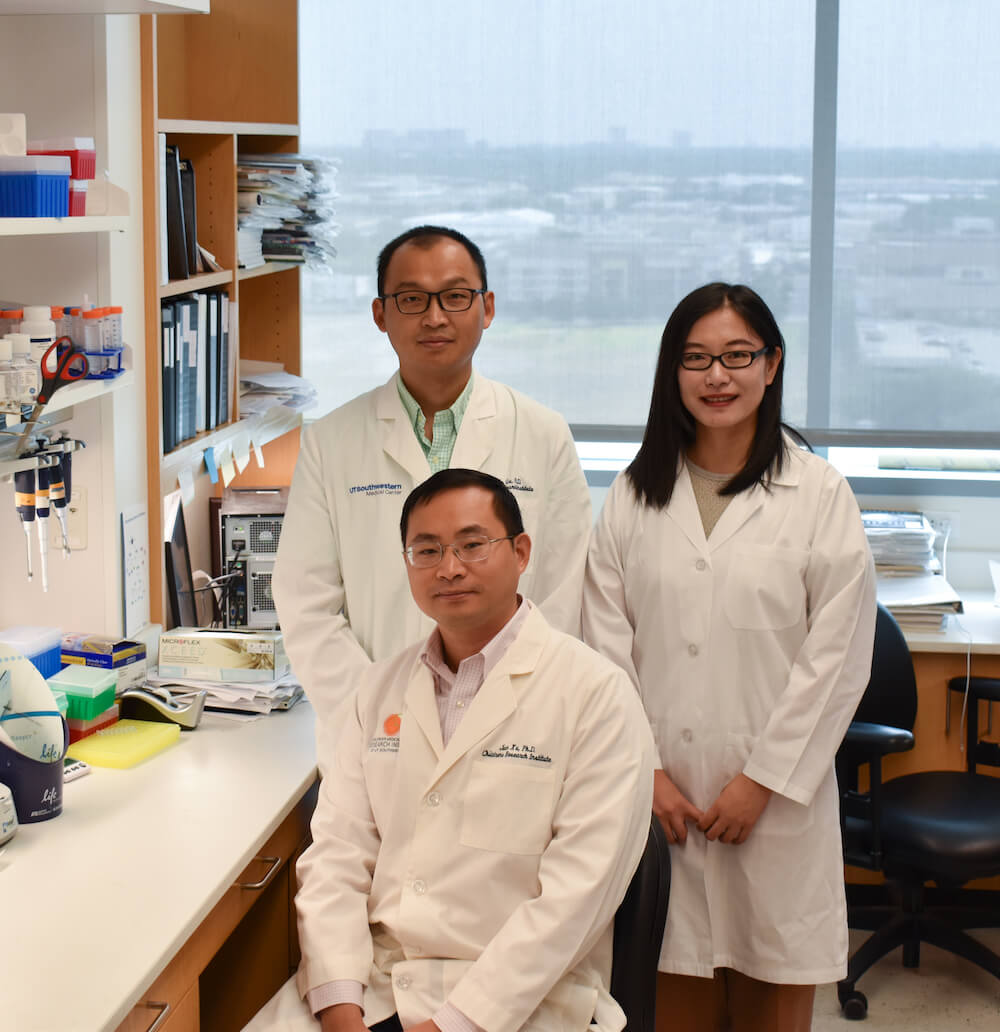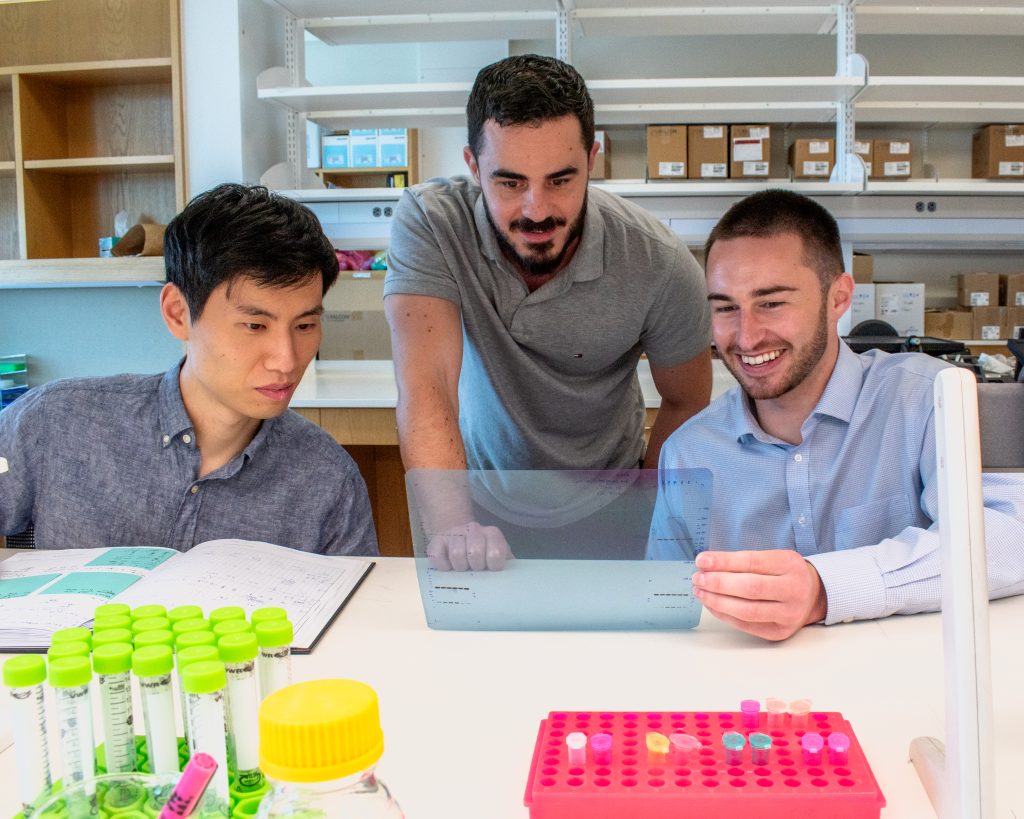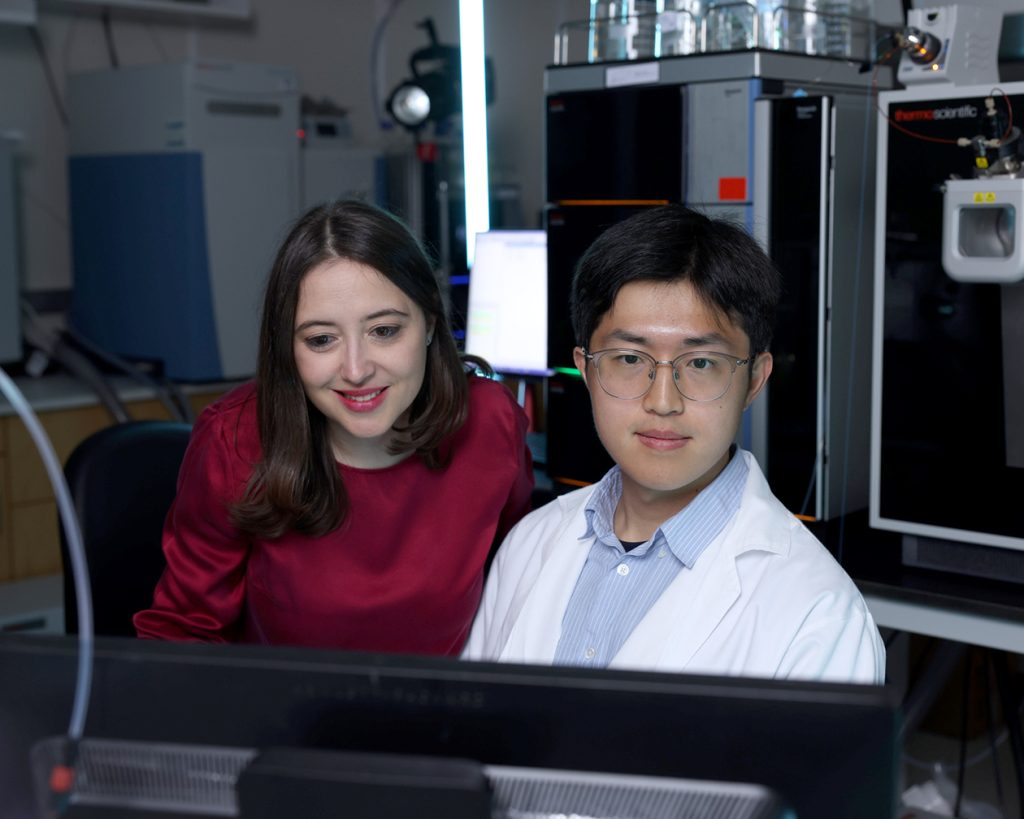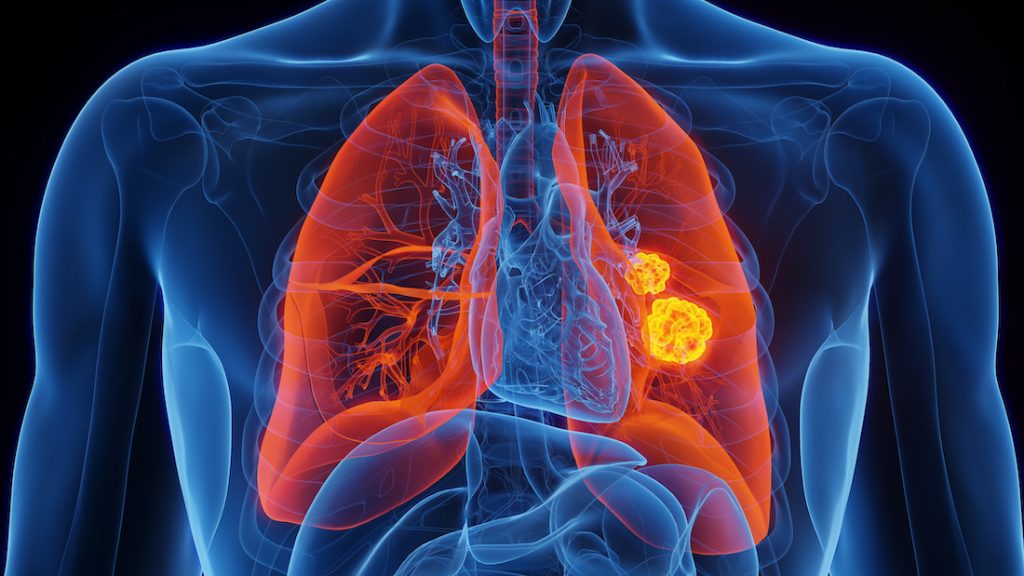
Jian Xu, Ph.D. with first authors Zhimin Gu, Ph.D. and Yuxuan Liu, Ph.D.
Researchers at the Children’s Medical Center Research Institute at UT Southwestern (CRI) discovered that epigenetic alterations, which determine when genes are turned on and off, can rewire metabolism during blood cancer development. The findings, published in Cancer Discovery, opens up several new potential therapeutic options for patients with a progressive form of blood cancer known as myeloproliferative neoplasms (MPNs).
MPNs can strike at any age, and currently, there is no cure for them. Additionally, a subset of MPN patients are at risk of disease progression to acute leukemias such as acute myeloid leukemia (AML) within 10 years of diagnosis. Treatment options for post-MPN leukemia patients are limited, and conventional approaches fail to offer a long-term cure.
“Currently, we do not understand how MPN progresses from a chronic disease to full-blown leukemia, which makes it hard to develop mechanism-based therapies to prevent disease progression and relapse,” said Dr. Jian Xu, senior author of the study and assistant professor in CRI and Department of Pediatrics at UTSW.
To help identify the molecular pathways that may drive disease progression, the Xu lab developed a new genetic mouse model that mimics progressive myelofibrosis and leukemic transformation often seen in human MPNs. Using this new model, scientists were able to link EZH2, one of the most frequently mutated epigenetic factors in MPN patients, to branched-chain amino acid (BCAA) metabolism. Further analysis found the enzyme BCAT1, which is normally suppressed by EZH2 during blood development but is activated in leukemia cells, promoted BCAA production and led to leukemic progression and transformation.
Researchers found inhibiting BCAT1 impairs the growth and development of leukemia cells. These findings suggest BCAT1 or BCAAs could be explored as targeted therapies for patients with leukemia associated with EZH2 mutations or other epigenetic changes.
To learn more about the study, read the detailed review from the Leukemia and Lymphoma Society.



